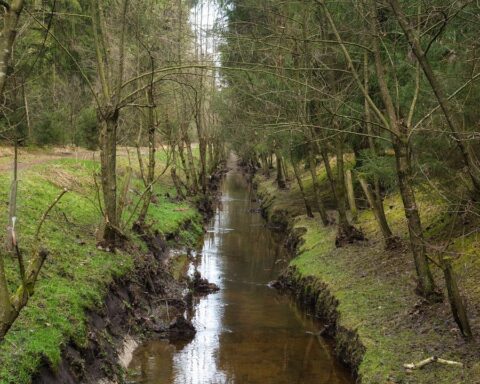The state of Ohio has expanded a $270 million initiative to improve water quality across the state to include a specific program that focuses on large rivers. The new $47 million program, called H2Ohio Rivers will remove dams, conserve land and test 29 of Ohio’s largest rivers for per- and polyfluoroalkyl substances (PFAS).
H2Ohio Rivers is an extension of H2Ohio, which has primarily focused on replacing water infrastructure in low-income areas, creating wetlands and reducing harmful algal blooms that can create dead zones in water bodies, including Lake Erie.
As part of H2Ohio Rivers, the Ohio Environmental Protection Agency (Ohio EPA) will collect water samples and aquatic life tissue in rivers statewide to measure PFAS contamination. PFAS are commonly used in personal-care and industrial products and have been linked to multiple forms of cancer and other serious health issues.
Completion of river sampling is expected by fall 2024. The findings will inform state efforts to remediate contaminated areas and whether the state needs to issue advisories on consuming fish caught in those areas.
The initiative will also fund dam removal projects at decaying sites that have begun to harm water quality and disrupt fish migration. Removing the Great Miami River dams in the cities of Troy and Piqua will be the first dam projects to receive funding, state officials said. The projects, which will open a combined 5 miles of the river upon completion, also call for modifying Piqua’s sheet pile dam to support fish passage, recreational activities and habitat restoration.
Plans also call for the state’s natural resources agency to survey freshwater mussels — a species that helps measure ecological health due to their sensitivity to pollution. The study will get underway in spring 2024. The results will inform future river health strategies.
The state will also focus on land conservation, specifically preserving riverside forests that act as buffers along waterways. The trees and vegetation next to rivers prevent water quality degradation by consuming nutrients that can otherwise cause pollution.
To that end, H2Ohio Rivers will team up with the U.S. Department of Agriculture (USDA) to launch a Conservation Reserve Enhancement Program (CREP) for the Great Miami River and State Scenic Little Miami River watersheds. The USDA’s Farm Service Agency (FSA) administers CREP grant funding to farmers and ranchers to not use environmentally sensitive land for agriculture or livestock. Removing this land from production improves water quality by reducing farm nutrient runoff. The H2Ohio program is currently exclusive to farmers in the Western Lake Erie Basin. However, beginning in 2024, agricultural producers statewide will be eligible to participate in the incentive program.
All news and information on this site is provided by the team at Strategic Partnerships, Inc. Check out this short 1-minute video that provides a quick overview of how we work with clients.










